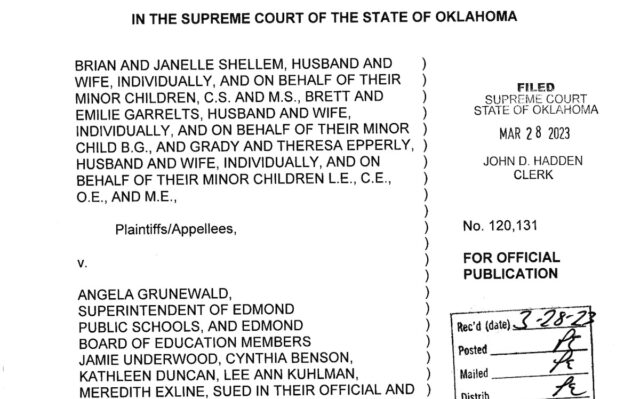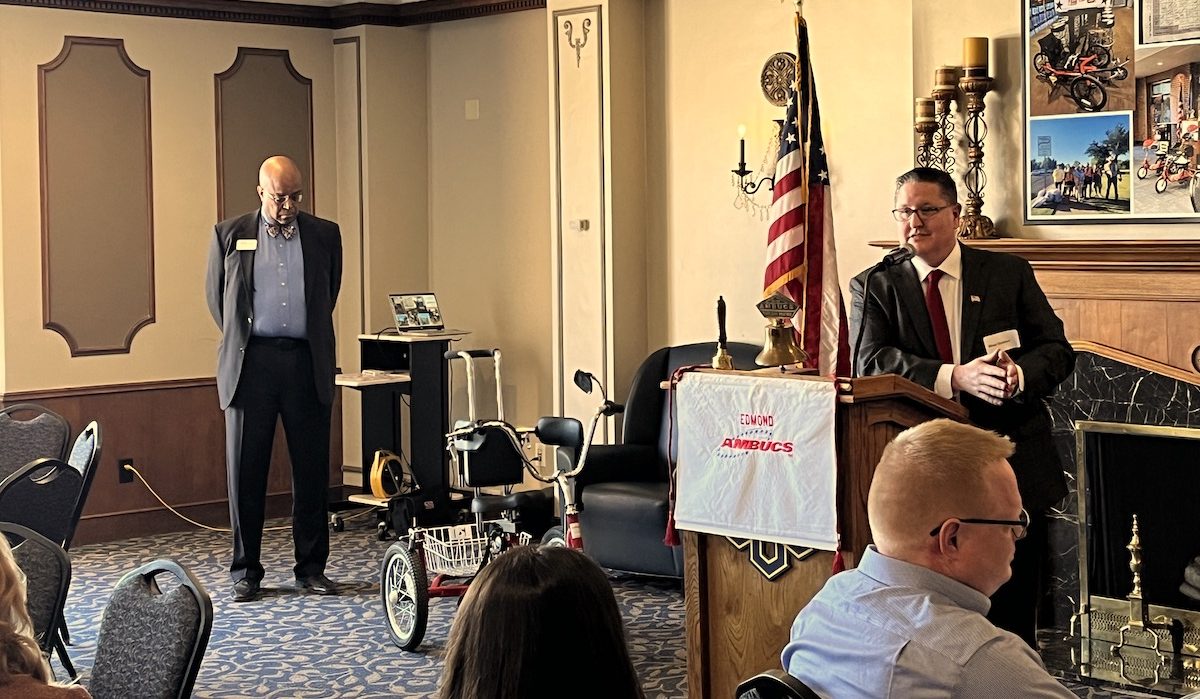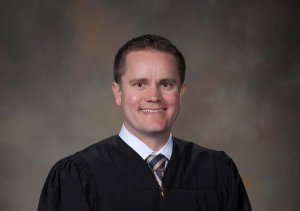

The Oklahoma Supreme Court granted a declaratory judgement Tuesday in favor of a group of Edmond parents who argued Edmond Public Schools’ COVID-19 policy violated state law by requiring quarantines for unvaccinated students exposed to the virus.
EPS’ quarantine policy required unvaccinated students who have not tested positive for COVID-19 within 90 days and who are identified as a “close contact” to quarantine for either seven or 10 days. Vaccinated students identified as close contacts were not required to quarantine, unless the student displayed symptoms.
In his 5-4 majority opinion, Oklahoma Supreme Court Vice Chief Justice Dustin Rowe wrote that with the passage of 70 O.S. § 1210.189, the Legislature “divested school districts from establishing policies that condition a student’s school attendance on their COVID-19 vaccination status.”
The law stemmed from SB 658, which was passed by the Legislature and signed by Gov. Kevin Stitt in May 2021. The law states that public schools shall not “require a vaccination against coronavirus disease 2019 (COVID-19) as a condition of admittance to or attendance of the school or institution.”
“We find district’s policy violates § 1210.189(A)(1). The trial court’s order is vacated and declaratory judgment is granted in favor of parents,” Rowe wrote.
Shellem: ‘We look forward to working with Edmond Public Schools’

One of the parents who filed the lawsuit is Edmond mayoral candidate Brian Shellem. The Oklahoma Supreme Court’s decision comes just one week ahead of the city’s April 4 municipal election.
Shellem said he wants to collaborate with EPS now that the court has ruled on the law.
“I’ll tell you right now, we look forward to working with Edmond Public Schools,” Shellem said. “It’s always for the benefit of the kids in our city, no matter what.”
Asked for comment on the decision EPS communications director Susan Parks-Schlepp said the district is “disappointed.”
“Legal counsel for the district will be meeting with the superintendent and Board of Education to discuss the ruling,” Parks-Schlepp said.
Rowe: We find ‘attendance’ unambiguous
Three sets of Edmond parents filed the lawsuit in September 2021, individually and on behalf of their children, seeking a declaratory judgement, injunctive relief and a temporary restraining order to keep EPS from enforcing its COVID-19 quarantine protocols. EPS objected, and the temporary restraining order was denied.

In their petition, the parents alleged the district’s policy violated 70 O.S. § 1210.189(A)(1), their children’s 14th Amendment right to procedural due process and their children’s First Amendment right to freely assemble.
In a December order, Oklahoma County District Judge Don Andrews denied relief on all three counts pleaded in the petition, but he granted a temporary injunction based on the parents’ Equal Protection Clause argument and “enjoined EPS from implementing or enforcing” district policy. EPS appealed the decision to the Oklahoma Supreme Court.
In May 2022, Bryan Cleveland, at the time deputy solicitor general at the Oklahoma Attorney General’s Office, filed an amicus curiae brief claiming that Andrews misinterpreted state statute with his decision.
Issued Tuesday, the Oklahoma Supreme Court’s opinion states that Andrews “misinterpreted” the law, and “incorrectly concluded [the plaintiffs] were unlikely to succeed on the merits of their claim that the policy violates [the statute.]”
Rowe referenced the district’s trial arguments, which contended that students were not required to quarantine based on vaccination status, but based on “evidence of that student’s heightened immunity to COVID-19,” to which he disagreed.
“The statute explicitly prohibits school districts from utilizing a student’s COVID-19 vaccination status as a condition of whether he or she may attend school in-person,” Rowe opined. “The policy’s consideration of whether a student has tested positive for COVID-19 within the previous 90 days in addition to a student’s COVID-19 vaccination status does not cure the violation.”
Rowe also referenced another one of the district’s arguments — which claimed that quarantined students who participate in virtual learning are counted in “attendance,” and, therefore, the EPS policy is not in violation of state law. Rowe disagreed, arguing that the term “attendance,” as stated in the statute, is “unambiguous.”
“Nothing in the text suggests the Legislature intended for ‘attendance’ to mean anything more than in-person, physical attendance,” Rowe opined. “We find ‘attendance’ unambiguous.”
Rowe wrote that EPS still retains the authority to exclude a student from school grounds if the student is sick with a contagious disease.
“Lastly, we also find the trial court erred when it interpreted [the statute] as ‘prohibit[ing] a school district from placing an unvaccinated student into quarantine, even if that student was symptomatic and/or tested positive for COVID-19,'” Rowe wrote. “District retains the statutory authority to exclude a student from the school premises if afflicted with a contagious disease.”
Chief Justice John Kane and Justices James Winchester, Richard Darby and Dana Kuehn concurred with Rowe’s decision, while Justices Yvonne Kauger, James Edmondson, Douglas Combs and Noma Gurich dissented.
In Combs’ dissenting opinion, he argues that the majority opined “upon an issue that is not before this court for appellate review — whether the trial court erred in its interpretation of [the statute] and in its resulting denial of appellee parents’ request for declaratory relief on that basis — because neither party has raised it.”
“The parties did not preserve the issue for appellate review, and there is consequently no basis for the majority to render their judgment on appeal vacating the trial court’s temporary injunction and granting declaratory judgment in parents’ favor,” Combs wrote.
Combs added that he would have reversed the temporary injunction issued by Andrews, as he does not believe the plaintiffs would have succeeded on “Equal Protections grounds.”
Combs also stated that he believes the statute did not halt EPS from establishing a quarantine policy.
“Nothing about that statutory provision prevents the school district from implementing a common-sense quarantine policy based upon input from the local city-county health department that differentiates between students whose immune systems are bolstered against infection through either vaccination or recent prior infection and other students,” Combs wrote. “If the Legislature wanted to curb such quarantine policies, it could have included language to that effect. It didn’t.”
Santa Fe High School students, staff being tested for tuberculosis
Regarding a separate contagious disease, the Oklahoma City-County Health Department is currently testing some Edmond Santa Fe High School students and staff members for tuberculosis after an exposure at the high school this week.
Susan Riley, a spokesperson for the OCCHD, said Tuesday that affected students and staff have been notified.
“This is not a public health emergency — just a public health concern — which is why OCCHD has partnered with Edmond Public Schools to ensure the safety and well-being of the students and staff,” Riley said.
Read the Oklahoma Supreme Court’s decision
